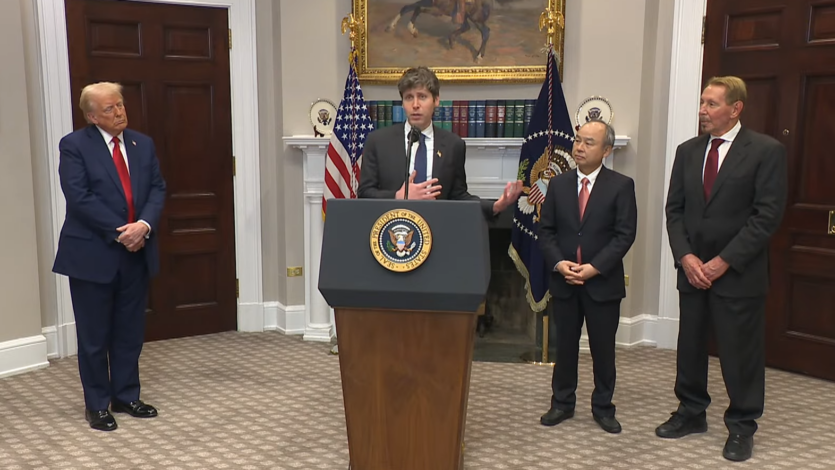
The Stargate project is led by OpenAI, the Japanese conglomerate SoftBank, and Oracle, listed as “primary investors”—with Sam Altman’s company handling operational activities, and SoftBank taking care of the financial side (conglomerate leader Masayoshi Son will become the chairman of Stargate).
“The Stargate project is a new company that aims to build AI infrastructure for OpenAI in the USA,” says a joint statement from OpenAI, Oracle, and SoftBank. “This project will not only support the reindustrialization of the United States but also provide strategic capacity for the protection of national security of America and its allies.”
Initial investments in the Stargate project will be $100 billion, but this amount is planned to be increased to at least $500 billion over the next four years.
The project also involves Microsoft, Arm, Nvidia, and the Middle Eastern AI fund MGX—and in this sentence are the answers to the questions where the chips will come from and potential further financing (MGX is a specialized venture fund closely associated with ruling families in the Emirates).
Microsoft participates in the project as a “technical partner” and separately announced an “update to the agreement with OpenAI, which will last until 2030.” Recall that initially, the corporation invested about $10 billion in the startup, securing prioritized access to OpenAI’s API.
Note that SoftBank is also an investor in OpenAI and allocated about $500 million in the latest funding round, as well as an additional $1.5 billion, which will allow the startup to sell shares at a tender. Meanwhile, Oracle has a deal with OpenAI regarding the supply of AI computational resources.
Son and Trump have been closely collaborating since 2016, and SoftBank during Trump’s first term announced that it would invest $50 billion in startups in the USA and create 50,000 jobs.
The first data center within the Stargate project will be built in Texas and it will consume nearly a gigawatt of energy by mid-2026 (this is enough to power 750,000 small homes). According to Goldman Sachs estimates, by 2028, artificial intelligence will account for about 19% of data centers’ electricity needs.
Source: TechCrunch, The Verge

Spelling error report
The following text will be sent to our editors: